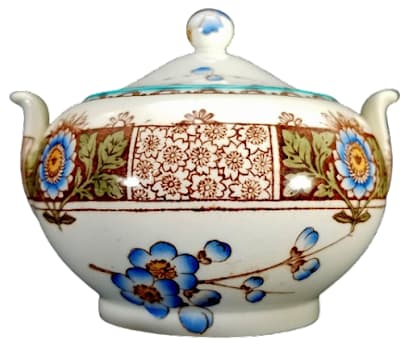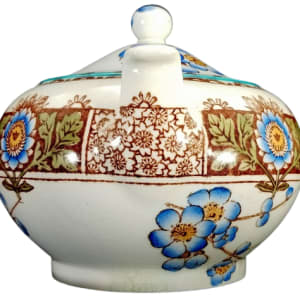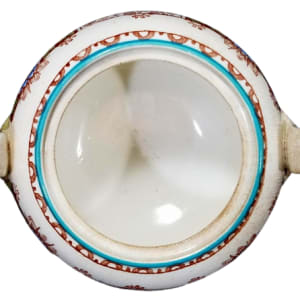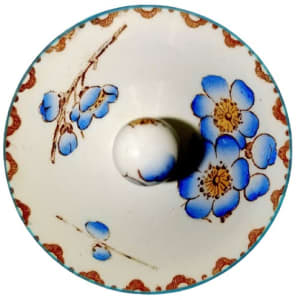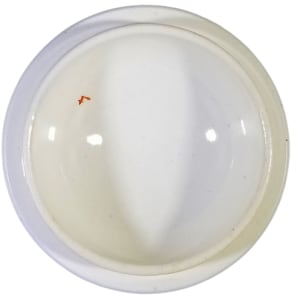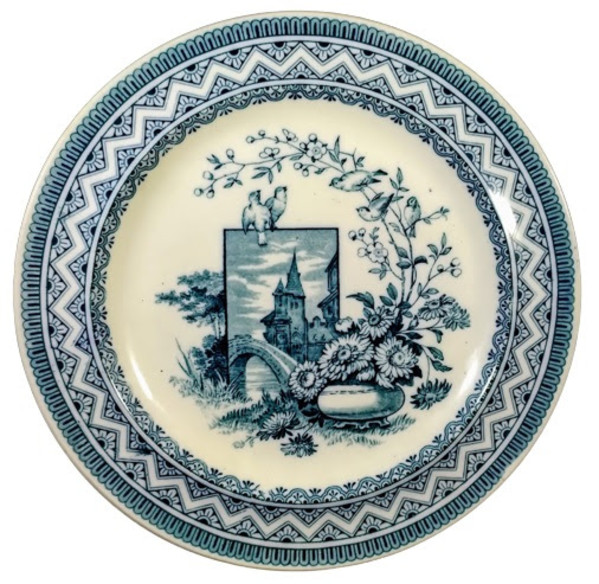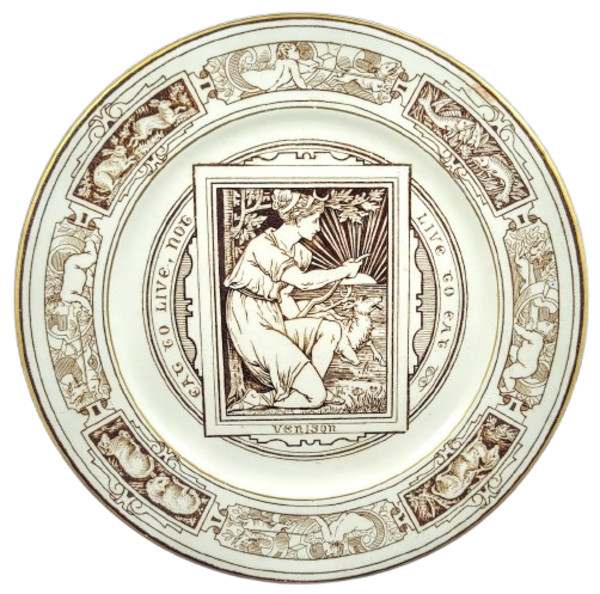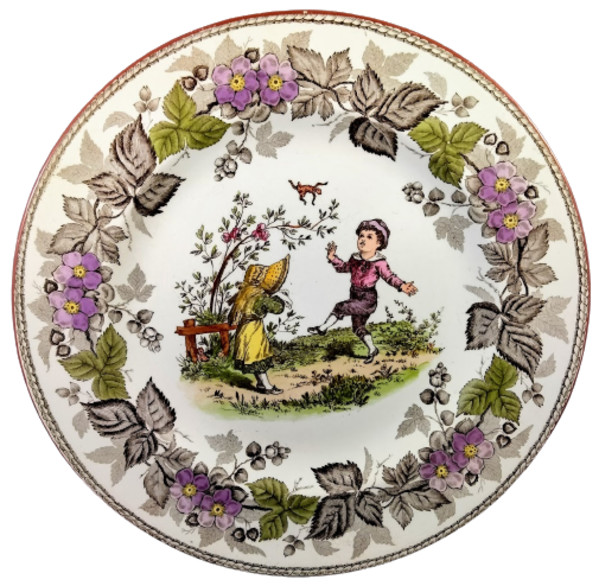- Josiah Wedgwood
- A2094 (Palm Leaves & Flowers), c. 1891-1920
- Earthenware
- 3.75 in (9.53 cm)
-
Not For Sale
Sugar Bowl, 3.75 inches tall. Brown transfer with polychrome clobbering. Printed mark for Wedgwood and painted pattern number in red. Each variation of this pattern has a different painted pattern number. The pattern consists of a single spray of blue flowers with green palm leaves centered in the plate. A narrow geometric band is at the outermost edge of the plate with a wide band of repeating brown and cream circle sections infilled with a blue flower and leaves in the brown sections. Leaves only are found in the cream colored sections.
Josiah Wedgwood was born in Burslem, Staffordshire, on July 12, 1730, into a family with a long tradition as potters. At the age of nine, after the death of his father, he worked in his family's pottery. In 1759 he set up his own pottery works in Burslem. There he produced a highly durable cream-colored earthenware that so pleased Queen Charlotte that in 1762 she appointed him royal supplier of dinnerware. From the public sale of Queen's Ware, as it came to be known, Wedgwood was able, in 1768, to build near Stoke-on-Trent a village, which he named Etruria, and a second factory equipped with tools and ovens of his own design. At first only ornamental pottery was made in Etruria, but by 1773 Wedgwood had concentrated all his production facilities there. During his long career Wedgwood developed revolutionary ceramic materials, notably basalt and jasperware. After Wedgwood's death in Etruria on January 3, 1795, his descendants carried on the business, which still produces many of his designs.
- Subject Matter: Aesthetic (Floral & Botanical)
- Collections: Aesthetic Transferware, Josiah Wedgwood
